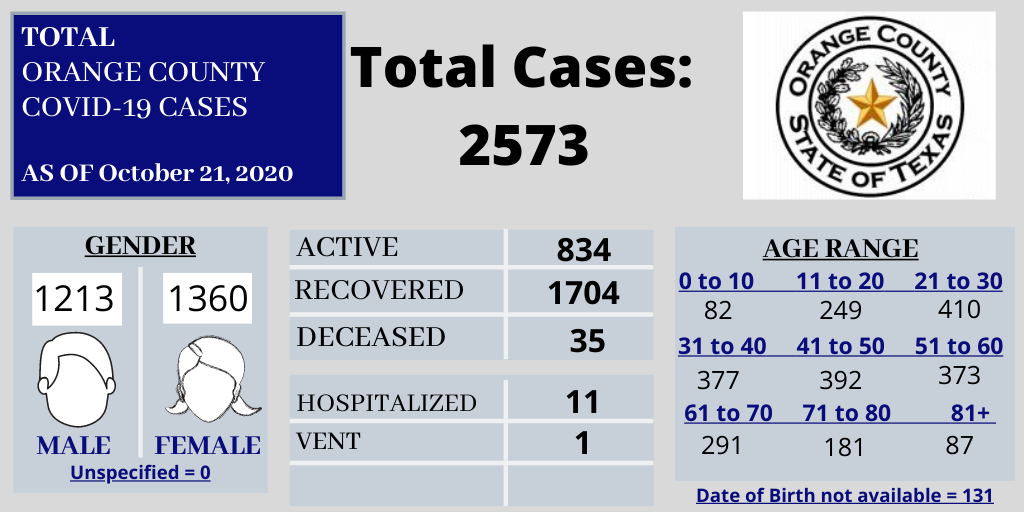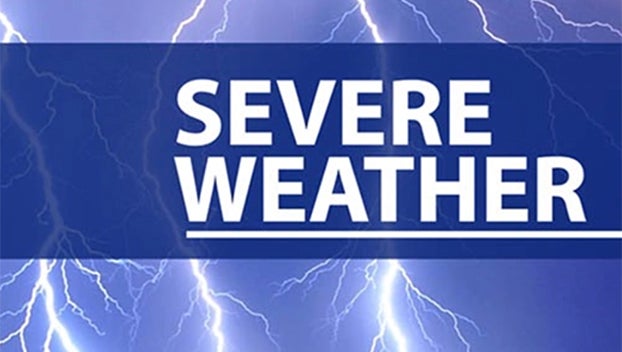Numbers still increasing for COVID cases
Published 12:20 am Saturday, October 24, 2020
|
Getting your Trinity Audio player ready...
|
Numbers for new cases for COVID-19 were not released last week due to Hurricane Delta. While there were no changes in the number of deceased from the virus, 35, or hospitalized, 11 or the number of persons on a ventilator, 1, the number of active cases saw a significant increase.
Since the last numbers released on October 7, 2020, the number of total cases is now 2,573. The numbers reflect 265 cases increase which averages 132.5 cases a week. Two weeks ago, there was an increase of 131 cases and 89 case increase the week prior to that.
The number of active cases is now at 834 which shows an increase of 233 cases compared to 601 active cases reported on October 7, 2020. The increase is an average increase of 116.5 cases during the two week period. A number which is higher than the previous two weeks of reported figures with 98 active cases increase on Oct.7 and 52 active cases increase on September 30,2020.
The number of total recovered cases is now at 1704, an increase of 32 cases since the last numbers were reported.
Worldwide, there have been 41.8 million cases of COVID-19 reported. Of those, 28.4 million are reported as recovered and 1.14 million deaths due to the coronavirus have been reported worldwide.
To help prevent the spread of COVID-19, everyone should:
- Clean your hands often, either with soap and water for 20 seconds or a hand sanitizer that contains at least 60% alcohol.
- Avoid close contact with people who are sick.
- Put distance between yourself and other people (at least 6 feet).
- Cover your mouth and nose with a mask when around others.
- Cover your cough or sneeze with a tissue, then throw the tissue in the trash.
- Clean and disinfect frequently touched objects and surfaces daily.
- CDC recommends that people wear masks in public settings and when around people outside of their household, especially when other social distancing measures are difficult to maintain.
- Masks may help prevent people who have COVID-19 from spreading the virus to others.
If you have had close contact with someone who has COVID-19, monitor yourself for symptoms for 14 days after the last day you were exposed to protect your health and those around you. The most common symptoms of COVID-19 are fever, cough, and shortness of breath. Other symptoms may include, muscle aches, fatigue, sore throat, chills, headache, runny nose, abdominal pain/discomfort, nausea, vomiting, or diarrhea. If you are 65 or older or have a medical condition (such as heart, lung, or liver disease, diabetes or cancer), or are on kidney dialysis, and you have been exposed to someone who has COVID-19—call your doctor.






